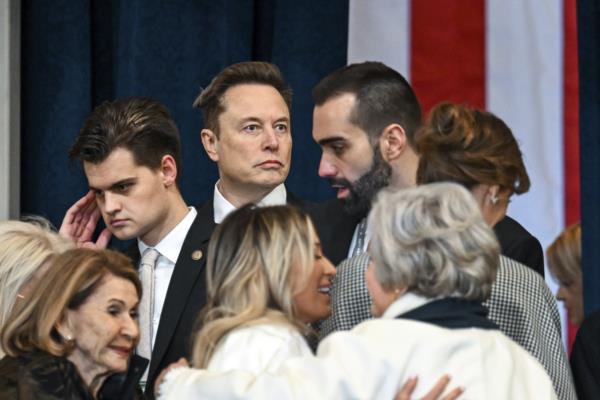
President Donald Trump's inauguration on Monday saw a departure from tradition as some of the most exclusive seats were reserved for powerful tech CEOs, who are also among the world's richest individuals. This shift in seating arrangement, typically reserved for the president's family, past presidents, and other distinguished guests, highlighted the influence of the tech industry in the political landscape.
Photos from the event captured tech CEOs mingling with Trump's Cabinet picks, including notable figures such as Robert F. Kennedy Jr. and Marco Rubio. The images showcased a lineup of tech's wealthiest leaders, including Meta CEO Mark Zuckerberg, Amazon CEO Jeff Bezos, Google CEO Sundar Pichai, and Elon Musk, who also serves as one of Trump's closest advisers.
Notable attendees at the Capitol included Apple CEO Tim Cook and TikTok CEO Shou Zi Chew, underscoring the significant role of the mega-rich in national politics. The presence of these influential figures at the inauguration highlighted the direct involvement of the world's wealthiest individuals in the new administration.











While billionaires have historically played a prominent role in politics, the close association of tech executives with the government has raised concerns about the concentration of power and influence. Former President Joe Biden had warned about the growing influence of tech billionaires, characterizing the situation as an oligarchy that poses risks to the nation.
In response to criticism, Trump dismissed concerns about his ties to tech executives, emphasizing that they had shifted their support from Biden to him due to his vision for the country. Despite receiving significant financial support from tech leaders, Trump asserted that he did not rely on their contributions and emphasized his commitment to the nation's well-being.
The presence of tech CEOs at Trump's inauguration underscored the evolving dynamics between the government and the tech industry, signaling a potentially influential role for these wealthy individuals in shaping policy and decision-making.







